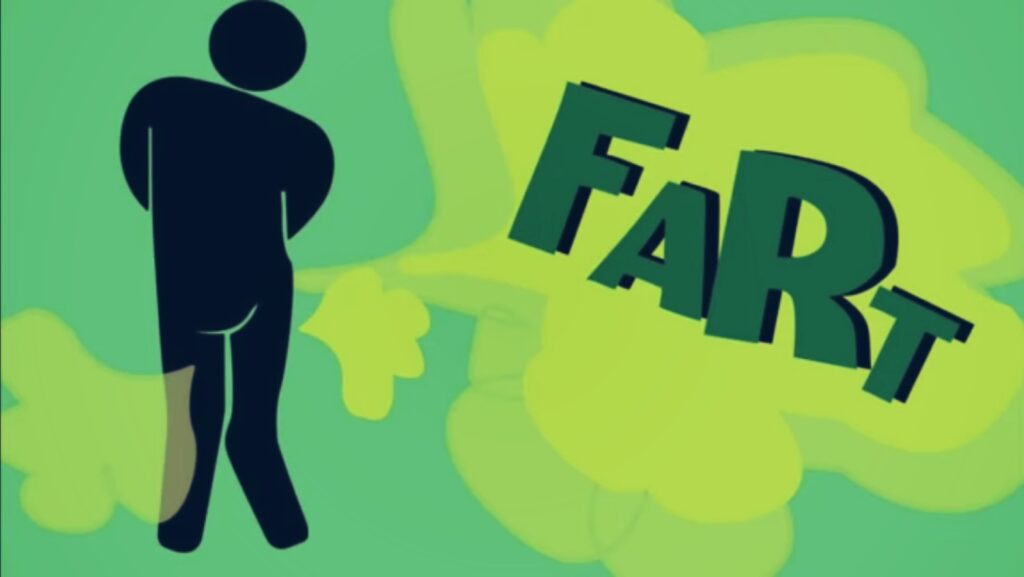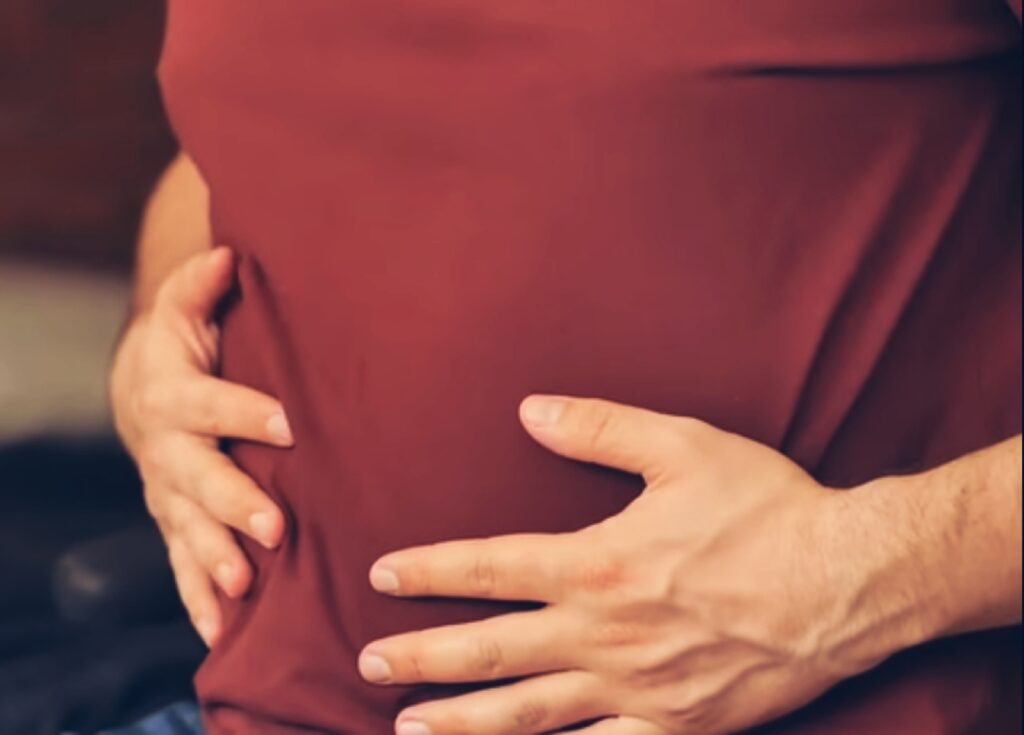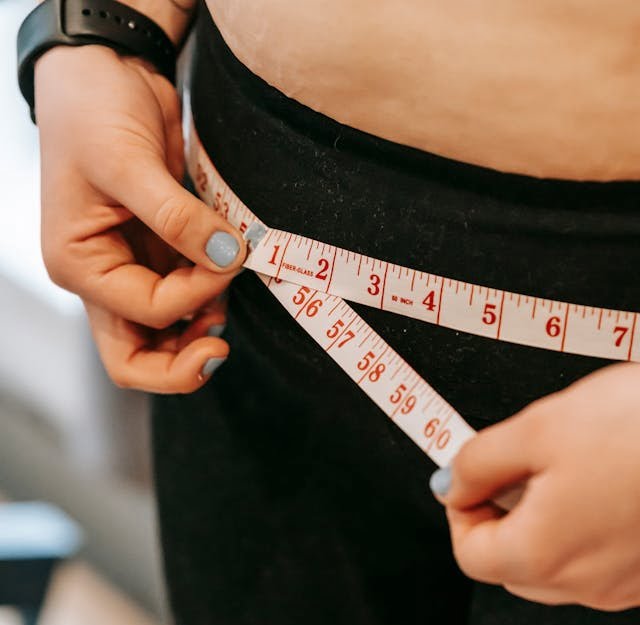Do Farts Burn Calories? This question has likely crossed your mind, and the answer might surprise you. While farting itself doesn’t directly burn a significant amount of calories, the process of creating gas can indirectly burn small amounts. The muscles involved in expelling intestinal gas do require a very small amount of energy. However, this calorie burn is negligible and not a practical weight loss strategy.
The average person farts 8-14 times a day, with up to 25 times per day still considered normal. These farts are caused by gases produced in the intestines. If gas forms in your intestines and you don’t burp it up, it travels down the digestive tract and exits as a fart.
The straightforward answer is NO: farting does not burn calories, and it is not a way to lose weight. Continue reading this article to know more about the facts of farting (flatulence) and calorie burn.
What Is Fart?
A fart, also known as flatulence or abdominal gases, is the release of intestinal gases from the anus. These gases are byproducts of the digestive process and the breakdown of food by bacteria and digestive enzymes in the gut. Farts are made up of swallowed air, chemical reactions, and other chemicals such as carbon dioxide, oxygen, nitrogen, hydrogen, and ammonia, etc.
Your diet plays an important role in the amount of gases you pass. Foods with added sweeteners, dairy products, and legumes are poorly absorbed in the gut and are rapidly fermented by gut bacteria. These foods can also cause bloating and distension of the stomach.

What’s the potential calorie burn from farting?
A popular claim from 2015 on the internet stated that one fart burned 67 calories. However, this claim was proven wrong after research. Researchers say farting is a passive process, so it doesn’t burn any calories at all. When you pass gas (fart), your muscles relax and the pressure in your gut expels the gas (flatulence) without effort. And since calories are burned when your muscles work, not when they relax.
How can farting make you burn calories?
The only way to burn a few calories by farting is if you strain while farting, and that is neither a healthy nor normal way to fart. When you strain while farting, the calories burned are very negligible, perhaps only around 1 or 2 calories. It’s not enough to make any significant difference in your health.
Don’t rely on farting to lose weight. It shouldn’t replace eating healthy and exercising regularly. Remember, farting has no impact on your weight loss journey.
Why Does Passing Gas Make You Feel Lighter?
You may feel lighter after passing gas. This is because releasing trapped gas in your intestines can lessen bloating, tightness, and relieve overall abdominal discomfort. Gas buildup in the intestines can cause the stomach to bloat. When this gas is expelled through farting, it reduces the pressure and volume in the abdomen, leading to a sensation of feeling “lighter.”
Why Do I Fart More When Dieting?
There are a few reasons why you may experience increased flatulence when you’re dieting.
- Many diets incorporate high-fiber foods like vegetables, fruits, beans, and whole grains. While fiber is essential for good health, it’s not easily digested by our bodies. As it passes through the digestive system, gut flora break down the fiber, producing gases like carbon dioxide, hydrogen, and methane as byproducts. These gases then exit the body through farting.
- When we aim to cut calories, some people may increase their intake of certain foods their body can’t fully break down, such as dairy products (for those with lactose intolerance). These undigested foods can produce gas, leading you to pass more gas than usual.
- Many low-calorie or “diet” foods contain artificial sweeteners like sorbitol, xylitol, or maltitol. These sweeteners are poorly absorbed by the human body. As a result, the undigested compounds get fermented in the gut, which can lead to increased gas.
- Some people tend to swallow more air while eating unfamiliar foods, such as chewing gum while dieting. This trapped air in the stomach can lead to increased farting.
Is Holding in Gas Bad for You?

Holding in gas can be uncomfortable, causing abdominal distension, bloating, or nausea. While not inherently harmful, it’s also not recommended. Therefore, it’s always best to expel the gas.
Holding in gas or not passing gas potentially bad for your health in several ways:
- When gas builds up in the intestines and isn’t released, it can cause abdominal pressure, bloating, cramping, and pain.
- When gas doesn’t exit through the fart, it may come Back up and expell out through belching, which increases the risk of acid reflux.
Does Farting Burn Calories? We’ve Got the Answer
In conclusion, while farting is a normal bodily function, it doesn’t directly burn any significant calories. The process itself requires very little energy. However, there are a few minor ways farting might indirectly contribute to calorie burning. For instance, farting can temporarily decrease abdominal bloating, leading to a feeling of relief.
While farting can provide relief from uncomfortable intestinal gas, it’s not a reliable way to burn calories or lose weight. Effective weight loss strategies focus on exercise and healthy eating habits. Remember, farting is a natural bodily function, but not a weight-loss technique!
Read more articles
Why does my urine smell like popcorn?
Green poop and stomach pain, cause, treatment and when to see a doctor
Why Am I Farting So Much?
There can be several ways why you fart so much. Here are some causes that can cause excessive fart
• Dietary changes: An increase in gas can occur when you’ve made dietary changes, especially if you’ve increased your intake of gas-producing foods like beans, broccoli, cabbage, sugary foods, or dairy products.
• Lactose intolerance: If you have difficulty digesting lactose, the natural sugar in dairy products, it can cause excessive gas, bloating, and flatulence.
• Swallowing air: Habits like chewing gum, drinking carbonated beverages, eating too quickly, or smoking can cause you to swallow more air, which then gets released as gas.
• Food intolerances: Having an intolerance or difficulty digesting certain foods like wheat, fructose, or artificial sweeteners can contribute to gas problems.
• Gut bacteria changes: Alterations in the balance of bacteria in your gut microbiome, often due to antibiotic use or illness like diarrhea, can increase gas production.
• Medical conditions: Certain gastrointestinal disorders like irritable bowel syndrome (IBS), celiac disease, can lead to excessive gas.
• Constipation: When waste moves slowly through your digestive tract, it creates more opportunity for gas to build up before being released. That cause excessive farting.





